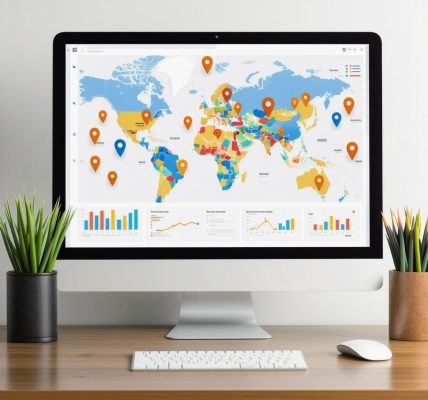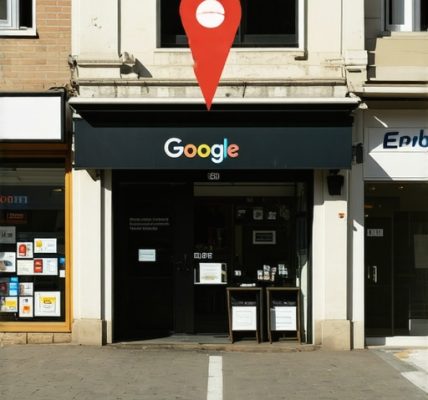Understanding the Importance of Local SEO for Small Businesses
In today’s digital landscape, local SEO plays a crucial role in the success of small business owners. With more consumers relying on local searches to find products and services, it’s essential to optimize your online presence effectively. Local SEO strategies not only improve your visibility in search results but also help attract potential customers who are actively looking for businesses like yours in their vicinity.
Every small business owner should prioritize local SEO tactics to enhance their online visibility and drive traffic to their physical locations. By implementing effective local SEO tips, you can ensure that your business stands out in local search results, leading to increased foot traffic and sales.
Key Effective Local SEO Tips to Elevate Your Business
1. Optimize Your Google Business Profile
One of the most impactful local SEO strategies is to optimize your Google Business Profile. This free tool helps you manage your business’s online presence across Google, including Search and Maps. Ensure that your profile is complete with accurate information such as your business name, address, phone number, and operating hours. Regularly updating your profile with posts and photos can also enhance engagement and attract more customers.
2. Leverage Local Keywords
Incorporating local keywords into your website content is another effective strategy. Research and identify the keywords that potential customers are using to find services in your area. Utilize these keywords naturally within your website’s content, meta descriptions, and headers to improve your chances of ranking higher in search results. Tools like Google Keyword Planner can assist in identifying these valuable local keywords.
3. Build Local Citations
Local citations are online mentions of your business’s name, address, and phone number (NAP). Building citations on reputable sites can enhance your local search visibility and credibility. Make sure that your NAP information is consistent across all platforms to avoid confusion among search engines and potential customers. You can utilize expert GMB citation services to manage your citations effectively.
4. Encourage Customer Reviews
Positive customer reviews not only boost your online reputation but also significantly impact your local SEO. Encourage satisfied customers to leave reviews on your Google Business Profile and other platforms. Responding to these reviews can further enhance customer engagement and demonstrate your commitment to customer satisfaction. For best practices on generating reviews, check out our guide on GMB review generation strategies.
5. Create Locally Relevant Content
Producing content that resonates with your local audience can be a game-changer for your SEO efforts. Consider writing blog posts about local events, news, or community highlights that relate to your business. This not only positions your business as a local authority but also attracts backlinks from local websites, further enhancing your SEO strategy. For comprehensive techniques, explore our article on comprehensive local SEO optimization techniques.
By implementing these effective local SEO tips, small business owners can significantly enhance their online presence, attract more local customers, and ultimately drive growth. Remember, local SEO is an ongoing process that requires regular updates and adjustments to stay competitive in your market.
Utilizing Social Media for Local SEO Enhancement
Social media plays a vital role in boosting your local SEO efforts. Engaging with your audience through platforms like Facebook, Instagram, and Twitter not only increases brand awareness but also drives traffic to your website. Share content related to local events, promotions, and customer testimonials to create a community around your brand. By leveraging social media, you can enhance your online presence and encourage more interactions, which can positively impact your search rankings.
1. Share Locally Relevant Content
Posting content that resonates with your local audience can make a significant difference in your SEO strategy. Highlighting local news, events, and community issues can position your business as a local authority. Furthermore, this locally focused content can attract backlinks from local websites, increasing your website’s authority and improving your overall SEO performance. If you’re looking for more strategies, consider reading our article on local SEO ranking tips.
Mobile Optimization for Enhanced Local Search Visibility
With the rise of mobile device usage for local searches, it’s imperative to ensure your website is mobile-friendly. Mobile optimization not only improves user experience but also plays a crucial role in your local SEO strategy. Google favors mobile-optimized websites in search results, especially for local queries. Ensure your site is responsive, loads quickly, and provides easy navigation for mobile users.
1. Implement Responsive Design
Utilizing a responsive design ensures that your website adapts to various screen sizes, providing a seamless user experience across devices. This not only enhances user satisfaction but also reduces bounce rates, which can positively influence your search rankings. For more insights on optimizing your site, check out our guide on optimizing Google Business listings.
2. Optimize for Local Search Queries
Incorporating local keywords into your mobile site’s content is essential. Focus on long-tail keywords that reflect local searches, such as “best coffee shop in [your city]” or “affordable plumbing services near me.” This approach helps your website rank higher for specific local queries, driving more targeted traffic to your business.
Tracking and Analyzing Your Local SEO Performance
Monitoring your local SEO performance is crucial to understand what strategies are working and where improvements are needed. Utilize tools like Google Analytics and Google Search Console to track key metrics such as organic traffic, user behavior, and conversion rates. Analyzing this data allows you to make informed decisions and adjustments to your local SEO strategy.
1. Measure Key Performance Indicators (KPIs)
Identifying and measuring relevant KPIs, such as click-through rates, bounce rates, and customer engagement metrics, can provide valuable insights into your SEO efforts. Regularly review these metrics to identify trends and adjust your strategy accordingly. For a deeper understanding of tracking performance, consider exploring our post on tracking GMB performance metrics.
2. Conduct Regular SEO Audits
Performing regular SEO audits is essential to ensure your website remains optimized for local searches. This involves reviewing your site’s technical aspects, such as page speed, mobile-friendliness, and on-page SEO elements. By conducting these audits, you can identify areas that require improvement and implement necessary changes to enhance your local search visibility.
Leveraging Online Reviews for Local SEO Success
Online reviews are a cornerstone of local SEO, significantly influencing customer trust and search rankings. Encouraging satisfied customers to leave positive feedback on platforms like Google My Business and Yelp can enhance your online reputation. These reviews also contribute to your business’s visibility in local search results, making it essential to implement a review generation strategy.
1. Encourage Customer Feedback
Ask your customers for reviews after a successful service or purchase. You can send follow-up emails or provide links directly to your Google Business profile to facilitate the process. Creating an easy and seamless way for customers to leave feedback can significantly increase the number of reviews you receive. For best practices on generating reviews, read our article on GMB review generation best practices.
2. Respond to Reviews Promptly
Engaging with customers by responding to their reviews—both positive and negative—shows that you value their feedback. This practice not only helps build customer loyalty but also signals to search engines that your business is active and engaged, which can positively influence your local SEO rankings.
Content Marketing for Local SEO Impact
Creating high-quality, locally focused content can greatly enhance your SEO efforts. By developing blog posts, articles, and other resources that address local topics, you can attract a more targeted audience. This approach not only improves your website’s authority but also helps in establishing your brand as a local expert.
1. Write About Local Events and News
Publishing articles about local events, news, or community initiatives can draw attention from local audiences. This type of content can also encourage local backlinks and shares, further improving your visibility. To learn more about driving results with local SEO content, check out our post on local SEO ranking tips.
2. Utilize Local Keywords Strategically
Incorporating local keywords naturally into your content is crucial. Focus on long-tail keywords that reflect what your target audience is searching for, such as “best local bakeries” or “top-rated plumbing services in [your city].” This strategy will help optimize your content for local searches, driving more targeted traffic to your website.
Utilizing Google My Business Features Effectively
Google My Business (GMB) is an essential tool for local SEO. Optimizing your GMB profile can significantly enhance your visibility in local search results and Google Maps. Ensure all information is accurate and complete, including your business name, address, phone number, and hours of operation.
1. Post Regular Updates and Offers
Utilizing the posts feature on your GMB profile allows you to share updates, promotions, and events directly with potential customers. Regularly posting can keep your audience engaged and informed about your offerings, making them more likely to choose your business. If you want to learn more about using posts effectively, check out our guide on using GMB posts for local SEO.
2. Optimize Your Business Description
Your GMB business description is an excellent opportunity to include relevant keywords and highlight what makes your business unique. Be descriptive and concise, ensuring that you convey your core services and value proposition effectively. This can help improve your rankings and attract more local customers.
Implementing Local SEO Best Practices for Enhanced Visibility
To achieve success in local search rankings, it’s vital to integrate best practices into your overall digital marketing strategy. Local SEO is not just about optimizing your Google My Business profile; it encompasses various elements that work together to improve your online presence. By focusing on these components, you can attract more local customers and increase your business’s visibility.
1. Focus on NAP Consistency
Maintaining consistency in your Name, Address, and Phone Number (NAP) across all online platforms is crucial. Inconsistent information can confuse search engines and potential customers, negatively impacting your local SEO efforts. Ensure that your NAP details are identical on your website, social media profiles, and online directories. For a deeper understanding of achieving NAP consistency, consider reading our post on achieving NAP citation consistency.
2. Leverage Local Business Directories
Listing your business in local directories can significantly enhance your local search visibility. Directories such as Yelp, Yellow Pages, and local chambers of commerce provide valuable backlinks and improve your credibility in the eyes of search engines. When creating listings, ensure that all information is accurate and matches your NAP details. This practice can help boost your rankings and drive more traffic to your website.
Enhancing User Experience and Engagement
User experience is a critical factor in local SEO. A website that is easy to navigate, visually appealing, and mobile-friendly keeps visitors engaged and encourages them to explore your offerings. Addressing user experience can lead to longer site visits and lower bounce rates, both of which signal to search engines that your site provides value.
1. Optimize for Mobile Devices
With a growing number of users accessing information via mobile devices, having a mobile-optimized website is imperative. Ensure that your site is responsive and loads quickly on smartphones and tablets. A positive mobile experience can enhance your local SEO rankings and improve overall customer satisfaction. If you’re interested in more tips on enhancing mobile user experience, check out our article on effective local SEO strategies.
2. Create Engaging Visual Content
Visual content, such as images and videos, can captivate your audience and keep them engaged. High-quality photos of your products, services, and business can enhance the user experience and encourage customers to choose your business over competitors. Additionally, consider utilizing video content to showcase your offerings or share customer testimonials. This approach can help you connect with your audience on a deeper level.
Monitoring and Analyzing Your Performance
Regularly monitoring your local SEO performance is essential for continuous improvement. Utilizing analytics tools can help you track your website traffic, user behavior, and conversion rates, allowing you to make data-driven decisions. By analyzing your performance, you can identify areas for enhancement and adjust your strategies accordingly.
1. Utilize Google Analytics and Search Console
Google Analytics and Google Search Console are invaluable tools for monitoring your website’s performance. They provide insights into site traffic, user behavior, and search query performance. By leveraging these tools, you can uncover opportunities for optimization and enhance your local SEO strategy. To learn more about tracking performance metrics, refer to our guide on tracking GMB performance metrics.
2. Adjust Strategies Based on Insights
Analyzing your data allows you to refine your strategies for better results. If certain keywords or content types are underperforming, consider adjusting your approach or experimenting with different tactics. Continuous optimization ensures that your local SEO efforts remain effective and aligned with evolving search engine algorithms.
Frequently Asked Questions About Local SEO
1. What is local SEO and why is it important?
Local SEO involves optimizing your online presence to attract more business from relevant local searches. This is crucial for businesses that operate in a specific geographic area, as it helps them connect with potential customers nearby, improving visibility and driving traffic to their sites.
2. How can I improve my local search rankings?
To improve local search rankings, focus on optimizing your Google My Business listing, maintaining NAP consistency, acquiring quality backlinks from local directories, and generating positive customer reviews. Additionally, ensure your website is mobile-friendly and contains relevant local keywords.
3. What are local citations and why do they matter?
Local citations are mentions of your business’s name, address, and phone number on various online platforms and directories. They are essential for local SEO because they help search engines verify your business’s existence and credibility, which can enhance your rankings in local search results.
4. How important are customer reviews for local SEO?
Customer reviews are a significant factor in local SEO. Positive reviews not only enhance your online reputation but also influence search engine algorithms. They signal to search engines that your business is trustworthy, which can improve your visibility in local search results.
5. What role does social media play in local SEO?
Social media can enhance local SEO by driving traffic to your website and increasing brand awareness. Engaging with local customers on platforms like Facebook, Instagram, and Twitter helps build community connections and can lead to more online reviews and local citations.
6. How can I track my local SEO performance?
You can track your local SEO performance using tools like Google Analytics and Google Search Console. These tools help you monitor website traffic, user behavior, and keyword performance, enabling you to make informed decisions and adjustments to your strategy.
7. What are some common local SEO mistakes to avoid?
Common local SEO mistakes include inconsistency in NAP information, neglecting to claim and optimize your Google My Business listing, ignoring customer reviews, and failing to use local keywords in your content. Avoiding these pitfalls can significantly improve your local SEO efforts.
8. Can I do local SEO myself, or should I hire an expert?
While it’s possible to manage local SEO on your own, hiring an expert can provide valuable insights and save time. SEO professionals have the experience and tools necessary to implement effective strategies and stay up-to-date with the latest trends and algorithm changes.
9. How does mobile optimization affect local SEO?
Mobile optimization is crucial for local SEO as most users search for local information on their smartphones. A mobile-friendly website ensures a positive user experience, leading to longer visits and lower bounce rates, which can enhance your rankings in local search results.
10. What are some effective ways to generate local backlinks?
To generate local backlinks, consider partnering with local businesses, participating in community events, sponsoring local organizations, and submitting your business to local directories. Engaging with the local community can provide valuable link-building opportunities and boost your local SEO.
Authority Resources for Local SEO
For more comprehensive information on local SEO strategies and best practices, consider exploring the following trusted resources:
- Moz’s Local SEO Guide – A detailed resource providing insights into local SEO fundamentals and strategies.
- Search Engine Land’s Local SEO Section – Regularly updated articles and tips on local search optimization.
- Search Engine Journal’s Local SEO Resources – A compilation of best practices, case studies, and expert advice on local SEO.
- BrightLocal’s Local SEO Learning Hub – Offers tools and insights specifically focused on local search optimization.
- Google My Business Help Center – Essential for understanding how to optimize your Google My Business profile effectively.
Conclusion
In conclusion, mastering local SEO is essential for businesses looking to enhance their visibility and attract local customers. By implementing best practices, focusing on user experience, monitoring performance, and leveraging authority resources, you can significantly improve your local search rankings. Remember, local SEO is an ongoing process that requires consistent effort and adaptation to changing trends and algorithms. Embrace these strategies, and watch your business thrive in local search results.




I’ve been managing local SEO for my small café for the past year, and I can’t stress enough how crucial optimizing our Google Business Profile has been. Not only did filling out accurate details increase our visibility, but regularly posting updates about local events and new menu items really engaged our community. What surprised me, though, was the impact of encouraging and responding to customer reviews. It not only boosted our rankings but also fostered stronger customer relationships. One challenge I’ve faced is maintaining NAP consistency across various directories – it’s time-consuming but worth it for the credibility it builds. I’m curious, how do others balance the effort of updating multiple platforms and stay on top of local SEO changes? Have you found any tools or strategies particularly effective in streamlining this process? Also, how do you approach creating locally relevant content that feels natural rather than forced? Would love to hear different experiences and ideas!
Melissa’s point about maintaining NAP consistency really hits home. I run a small landscaping business here in Denver, and keeping that info uniform across multiple directories is definitely a challenge. I’ve found that some tools like Moz Local or Yext can really help automate and streamline the process, saving time and reducing errors. As for creating local content that feels authentic, I try to connect it to actual community events or seasonal tips specific to our area, which naturally resonates with our audience and encourages sharing. I’m curious, how do others prioritize between optimizing existing content versus creating new, locally relevant blog posts or social media updates? Do you see more engagement when you focus on one over the other? Would love to hear how you balance these efforts so I can learn from your experiences.